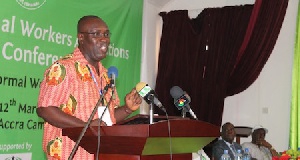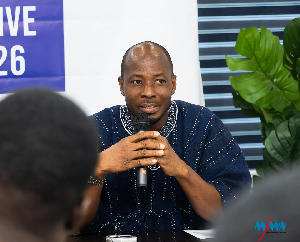The Ghana Trades Union Congress (TUC) has stated that the current power crisis was due to neglect of the energy sector.
Dr Tony Yaw Baah, the Deputy Secretary-General of the TUC said "what is causing ‘dumsor’ is the neglect of the country's power infrastructure for too long".
Dr Baah blames successive governments for not doing anything concrete over the years to add more generation to the country's electricity supply resulting in the worsening power crises.
He was addressing a May Day symposium at Tema on the theme, "Addressing the energy crises, the role of organized labour".
He cautioned that the energy crises, which had become an economic crisis, would degenerate into a social crisis if care was not taken.
He added that "government cannot continue to neglect it any longer".
He reminded stakeholders of the negative impact of ‘dumsor’ on businesses, industries, employers and employees.
Dr Baah observed that due to the industrialisation of Tema, the energy crises has had severe impact on the harbour city, which has led to the laying off of many workers with more to follow should the situation worsen.
He called on all stakeholders to put in their quota to help government resolve the power issue instead of treading of accusations and blames.
The Deputy Secretary-General gave the assurance that workers were prepared to offer their help towards solving the crises as it affected them most.
Mr Kofi Brako, the Member of Parliament for Tema Central, in a solidarity message, reiterated the need for stakeholders to unite in finding a solution to the crises.
Mr Brako also questioned the input of organized Labour since its inception 70 years ago.
He challenged them to research into the problem and come out with workable solutions.
He also appealed to them to pressurise government to listen to their inputs, reminding them that, even though governments would go and come, their policies would have effect on workers even when they exit.
Meanwhile, some of the union leaders have expressed their unhappiness on how the TUC was seemingly siding with government on its handling of the energy crises.
General News of Friday, 1 May 2015
Source: GNA













